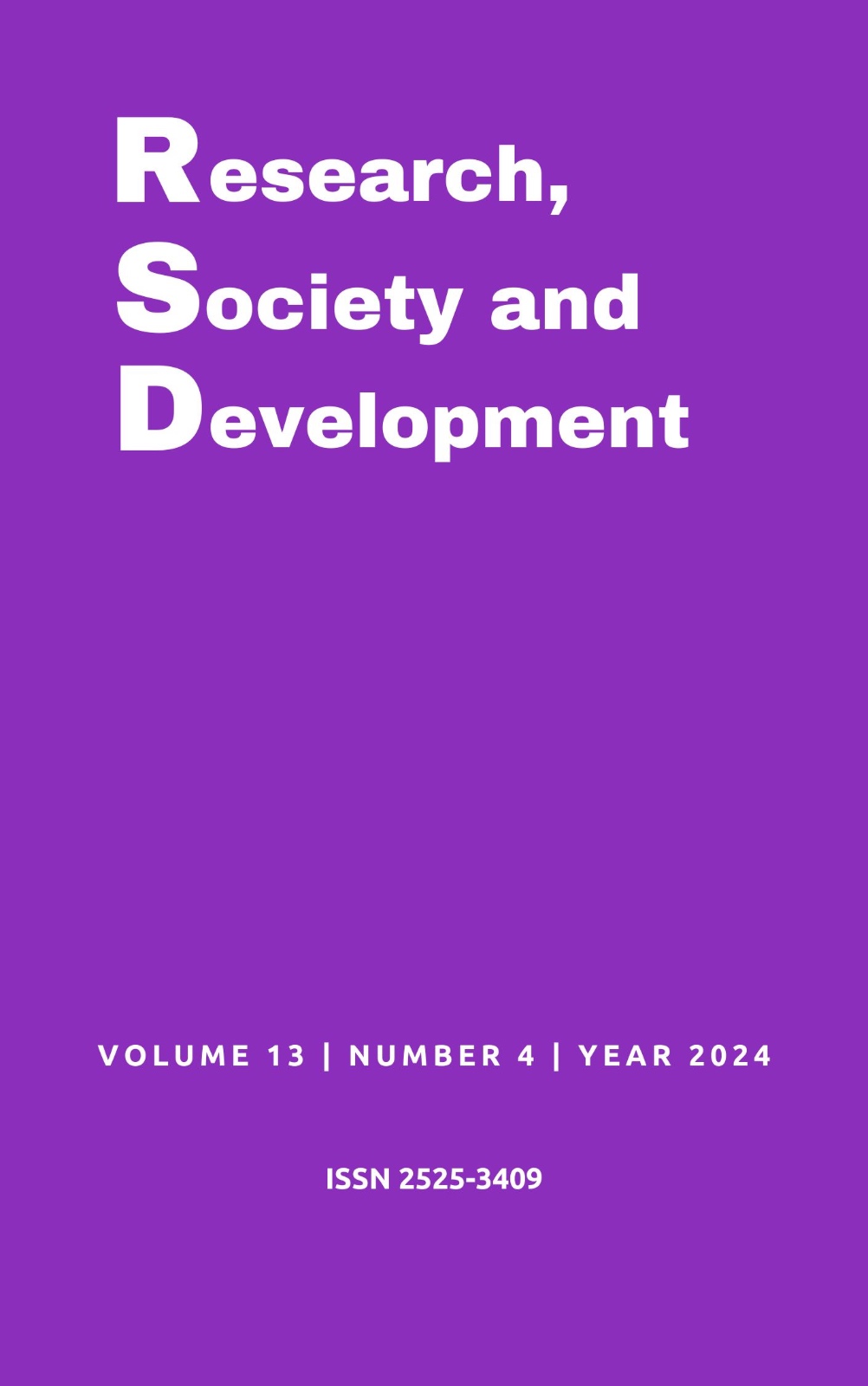Development of Logistic Regression Models for Binary Classification of Covid-19 and Statistical Prediction of Deaths
DOI:
https://doi.org/10.33448/rsd-v13i4.45446Keywords:
Predictive analysis, Binary classification, Risk profile, Odds Ratio, Logistic regression.Abstract
The present study aims to statistically research Covid-19 data to determine the profile greatest vulnerability of the disease, developing logistic regression models as a methodological strategy. Additionally, hypothesis testing, odds ratios and statistical prediction techniques are used to investigate the conditions of symptom exacerbation and to estimate the numbers of deaths and recoveries in different places. According to the results obtained from the multivariate models, it was defined that male individuals with pre-existing Hepatic, Neurological or Pneumopathy conditions represent the patients at greatest risk of death. Furthermore, a logistic regression model with a numerical independent variable was developed to predict the odds of belonging to the death class, thus determining the recovered and deceased cases. The model obtained positive results with significant accuracy in different municipalities and is available on the author's GitHub profile.
References
Albuquerque, H. A. de, Rocha, M. K., & Yamashita, G. H. A. (2022). Covid-19 e os Fatores que Influenciam a Probabilidade de Mortalidade: uma Análise de Regressão Logística com Dados do Sistema Único de Saúde do Brasil. LIV Simpósio Brasileiro de Pesquisa Operacional, 54(1), 1523.
Belsey, D. A., Kuh, E., & Welsch. R. E. (2013). Regression Diagnostics: identifying influential data and sources of collinearity. Nova Iorque: Wiley-Interscience, 10, 271.
Brasil. Governo de São Paulo. (2024). Cobertura Vacinal e Doses Aplicadas no Estado de São Paulo. Vacinômetro, <https://vacinaja.sp.gov.br/vacinometro/>. Acesso em: 14 de março de 2024.
Brasil. Governo de São Paulo. (2024). SEADE Coronavírus. SEADE. Disponível em: <https://coronavirus.seade.gov.br/>. Acesso em: 06 de março de 2024.
Carvalho, V. W. P. de, Cruz, S. S., Guedes, E. M., & Rabelo, D. F. (2023). Covid-19 e fatores associados em pessoas com 50 ou mais. Revista de Ciências Médicas e Biológicas, 22(1), 30-36. https://doi.org/10.9771/cmbio.v22i1.52476.
Carvalho, M. C. T., Jesus, B. M. B. de, Castro, V. L. de, Trindade, L. M. D. (2021). O impacto na qualidade de vida nos indivíduos pós Covid-19: O que mudou?. Research, Society and Development, 10(14), 1-17. http://dx.doi.org/10.33448/rsd-v10i14.21769.
Diniz, E. S., & Thiele, J. (2011). Modelos de Regressão em R. Santa Catarina: Clube de Autores, p. 112.
Gonzales, L. A. (2018). Regressão Logística e suas Aplicações. (Monografia de Graduação). Universidade Federal do Maranhão, Centro de Ciências Exatas e Tecnológicas, Curso de Graduação em Ciência da Computação, São Luís, MA.
Kerr, T. B. (2022). Espalhamento da Pandemia de Covid-19: Um Estudo Baseado na Regressão Logística Binária Múltipla e em Redes Neurais. (Monografia de Graduação). Universidade Federal de Uberlândia, Faculdade de Matemática, Curso de Bacharelado em Estatística, Uberlândia, MG.
Laureano, R. M. S. (2020). Testes de Hipóteses e Regressão: o meu manual de consulta rápida. Edições Sílabo, 216.
Martins, C. M., Gomes, R. Z. Muller, E. V., Borges. P. K. O., Coradassi, C. E., & Montiel, E. M. S. (2020). Predictive model for Covid-19 incidence in a médium-sized municipality in Brazizl (Ponta Grossa, Paraná). Texto & Contexto Enfermagem, 29. https://doi.org/10.1590/1980-265X-TCE-2020-0154
Nasri, A. L. X. G. (2023). Aplicação de Técnicas Estatísticas de Regressão para o Desenvolvimento de Modelos Matemáticos de Imputação de Valores Ausentes em Bancos de Dados. (Monografia de Graduação). Universidade Estácio de Sá, Centro de Engenharia e Matemática, Curso de Bacharelado em Matemática, Rio de Janeiro, RJ.
Nasri, A. L. X. G. (2024). Modelo Móvel de Previsão do Número de Óbitos de Covid-19. GitHub. Disponível em: <https://github.com/dedeluiznasri/movelo-movel-previsao-obitos-covid19>.
Pizzinga, A. (2019). Modelos de Regressão Para Variáveis Dependentes Nominais. Editora Prismas, p. 77.
Poloni, J. A. T., Jahnke, V. S., Rotta, L. N. (2020). Insuficiência renal aguda em pacientes com COVID-19. Revista Brasileira de Análises Clínicas, 52(2), 160-167.
Sansone, N. M. S., Valencise, F. E., Brendariol, R. F., Peixoto, A. O., & Marson, F. A. L. (2022). Profile of coronavírus disease enlightened asthma as a protective factor against death: An epidemiology study from Brazil during the pandemic. Frontiers in Medicine, 9, 01-17.
Santos, A. C. A., Fardin, L. P., & Neto, R. R. O. (2017). Testes de Hipótese em Análise de Regressão: testes de hipóteses para diferentes delineamentos, amostragens e modelos lineares e não lineares. Londres: Novas Edições Acadêmicas, 41.
Seber, G. A. F., Lee, A. J. (2003). Linear Reegression Analyssis. Nova Iorque: Wiley, 2, 493.
Silveira, M. B. G. da, Barbosa, N. F. M., Peixoto, A. P. B., Xavier, E. F. M., & Júnior, S. F. A. X. (2021). Aplicação da regressão logística na análise dos dados dos fatores de risco associados à hipertensão arterial. Research, Society and Development, 10(16), 1-18. http://dx.doi.org/10.33448/rsd-v10i16.22964.
Vasconcelos, F. F., & Moura, H. J. de. (2020). Elaboração de uma metodologia baseada em estatística para encaminhamento dos casos da COVID-19. Brazilian Journal of Public Administration, 54(5), 1417-1428. https://doi.org/10.1590/0034-761220200454.
Downloads
Published
Issue
Section
License
Copyright (c) 2024 André Luiz Xavier Guimarães Nasri; Guy Globa Masset

This work is licensed under a Creative Commons Attribution 4.0 International License.
Authors who publish with this journal agree to the following terms:
1) Authors retain copyright and grant the journal right of first publication with the work simultaneously licensed under a Creative Commons Attribution License that allows others to share the work with an acknowledgement of the work's authorship and initial publication in this journal.
2) Authors are able to enter into separate, additional contractual arrangements for the non-exclusive distribution of the journal's published version of the work (e.g., post it to an institutional repository or publish it in a book), with an acknowledgement of its initial publication in this journal.
3) Authors are permitted and encouraged to post their work online (e.g., in institutional repositories or on their website) prior to and during the submission process, as it can lead to productive exchanges, as well as earlier and greater citation of published work.


